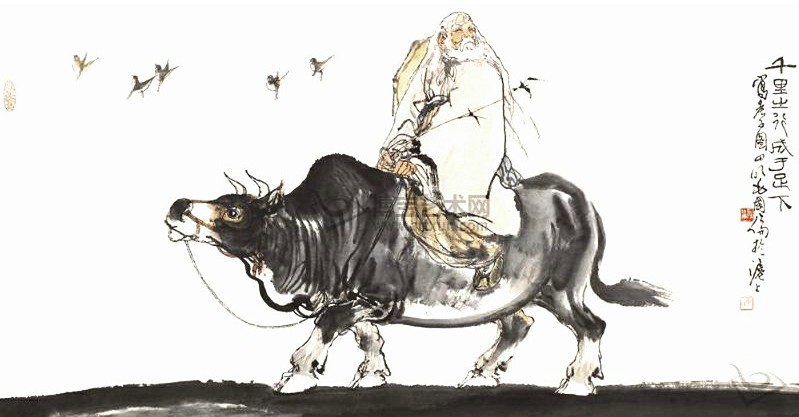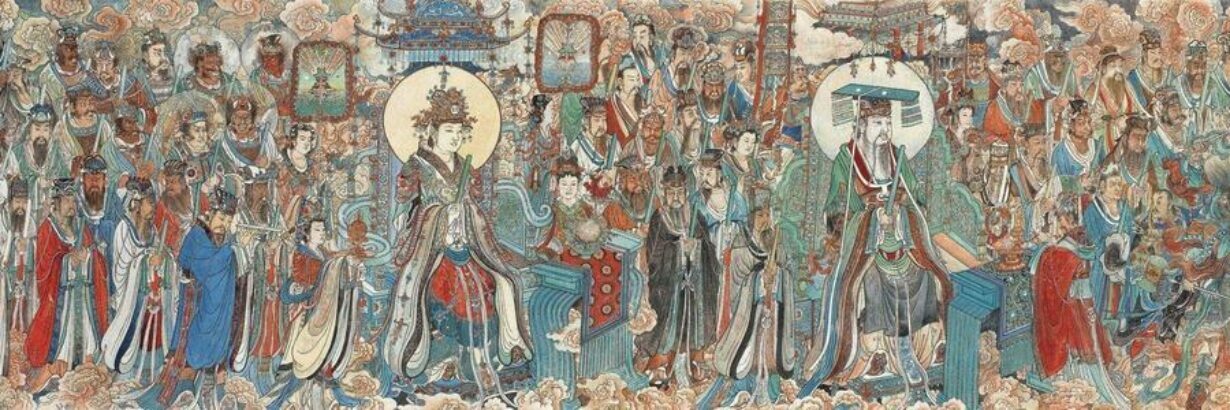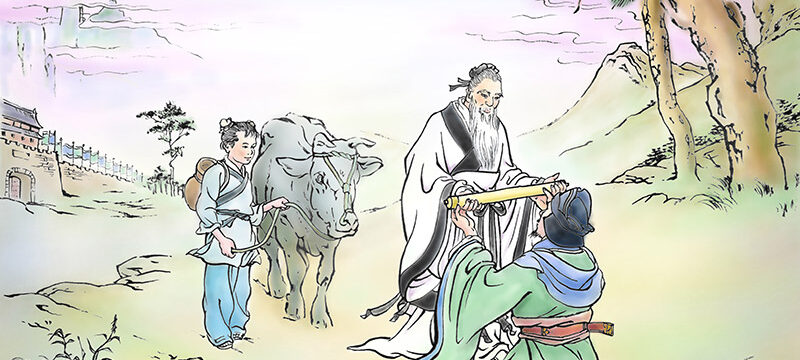Dao as taught by Laozi, is the core concept of Daoism religion.
It takes purity and tranquility as goals, emptiness and great void as its foundation, softness and humility as tools. Dao is considered the source and the lord of the universe; it is all encompassing; it is omnipresent; it is the mother of all creations. In Dao De Jing, it is said “Dao gives rise to one, one gives rise to two, two gives rise to three, and three gives rise to ten thousand beings”. In the view of Laozi, Dao means the nature of everything, the nature of the whole universe, and the laws of nature. Therefore, Dao puts every thing and every being on an equal footage in front of the Divine. Daoism believes every man has the right to believe in Daoism, and every being has the ability to learn about and acquire Dao.

Daoism believes when Dao disperses, it is a Vital Breath, when it gathers it materialized as Supreme Venerable Lord. Dao is also referred as “the nature”, “the void” or “the nameless”. Daoism believes “Laozi is Laojun (one of the three highest Divine in Daoism). He is Dao itself, he is the father of all energies, he is the essence of the heaven and earth”. Laozi is the personified embodiment of Dao itself. De is another central concept of Daoism. Dao and De are two aspects of one unit. In Dao De Jing, De is often referred to as complementary to Dao. It is the other half of unity the two has formed. In other Daoist texts, such as “The Scripture of Purity and Tranquility”, De is also considered as one’s virtue, personal conduct, and the goal for Daoists to achieve. Therefore, in Daoist belief and practice, one must accumulate De in addition to cultivate Dao. It is considered whatever conforms to Dao, conforms to De. When one or a matter conforms to De, it is called 有德 “You De”, literally “has De”; and when one or a matter does not conform to De, it is called 无德 “Wu De”, literally “has no De”. In the preface of the text “Xi Sheng Jing” (Scripture of Western Ascension), it wrties “when talk in the context of a person, Dao is called De”. According to standards of Dao, when one improves De upon his body, his De becomes authentic.
When a family improves De upon itself, the De becomes plentiful. When a village improves De upon itself, the De becomes respectful. When a state improves De upon itself, the De becomes splendid. When all under the heaven improves De upon itself, the De becomes universal. Daoism puts great emphasis on cultivating Dao and De, and views this as the basis for all activities regardless its individual, family, state or world wise. The goal is, by making Dao and De universal, we may have peace and love spread through out the world. There are two categories of De, the Yin (hidden) De and the Yang (obvious) De. Yin De is one’s De or virtues or good deeds that others do not know, and Yang De is the opposite. Daoism values Yin De over Yang De; it encourages people to self-improve, to accumulate De, to perform good deeds no matter how small it might be.
Written and Translated by Daoist Liu Cheng Yong, German Daoist Association.

